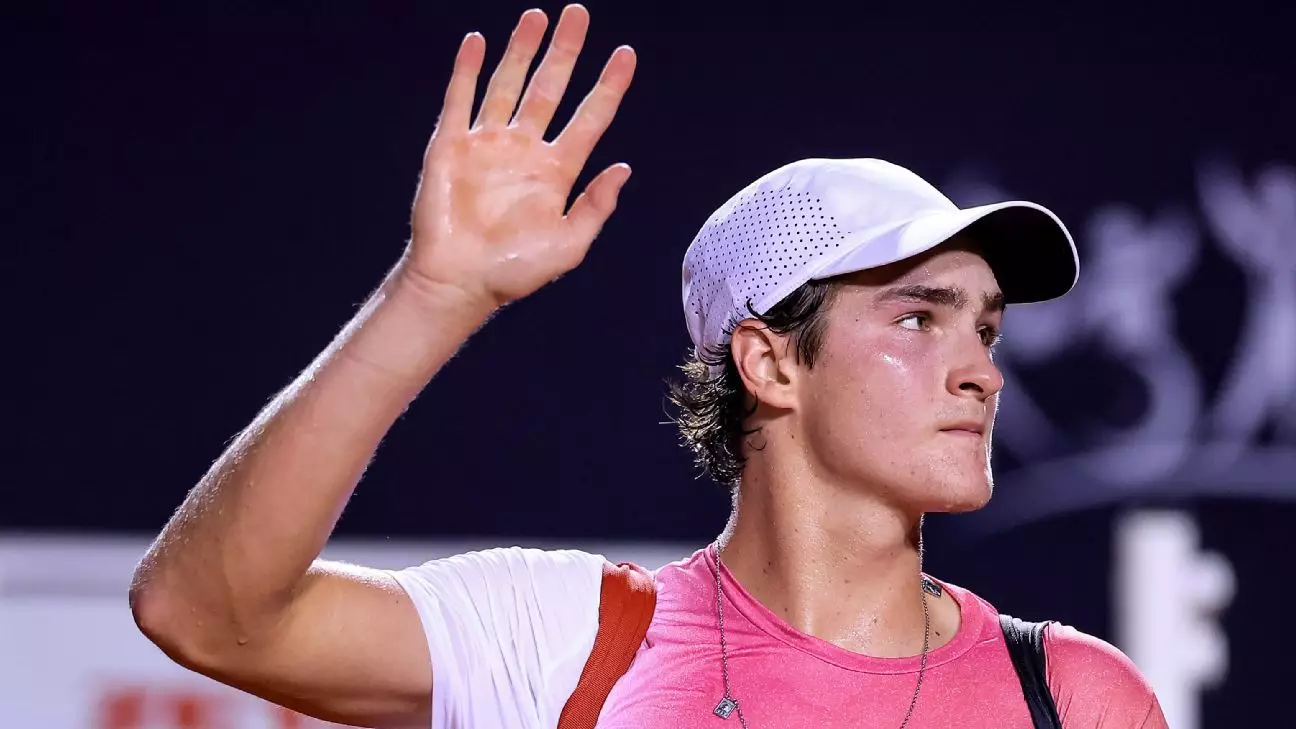João Fonseca, the 18-year-old Brazilian tennis prodigy, recently created waves by clinching his inaugural ATP title at the Argentina Open. Fans of the sport had high hopes for Fonseca as he entered the Rio Open, a prestigious tournament that takes place right in his home country. However, what unfolded on the court was a stark contrast to the celebratory atmosphere that had surrounded his earlier triumph. In an unexpected turn of events, Fonseca faced an early exit from the tournament after losing to No. 60-ranked Alexandre Muller of France with a scoreline of 6-1, 7-6 (4).
This match highlighted the volatile nature of sports, where peaks of success can quickly be followed by moments of disappointment. Despite his recent victory, Fonseca struggled to maintain the momentum and appeared fatigued as he committed an alarming 34 unforced errors throughout the match. This performance underlined the undeniable pressure that comes with expectations, particularly when competing in front of a home crowd.
Tennis, often touted as a mental sport, amplifies the concept of pressure in such high-stakes environments. For a young athlete like Fonseca, the burden of expectations can be overwhelming. He wasn’t merely facing a seasoned opponent in Muller; he was up against the collective hopes of his supporters, which can be both invigorating and paralyzing. As he progressed through the match, it was evident that the anticipation from the crowd translated into a heavier emotional weight to bear.
Fonseca’s strong performance in previous tournaments, including his impressive quarterfinal run in Rio last year and his triumph at the Next Gen ATP Finals in December 2024, set a foundation for expectations that had now morphed into a double-edged sword. Fans were eager to witness further accolades, and unfortunate fatigue inadvertently robbed Fonseca of his rhythm. Such moments are critical for a player’s growth; they reveal not just technical flaws, but also the emotional and psychological challenges intricate to professional sports.
Nevertheless, there is room for optimism in this setback. While losing early in a tournament is far from ideal, it offers valuable lessons. Fonseca’s journey is still in its developmental stages, and such experiences contribute significantly to his growth as a player. Overcoming adversity often molds athletes, helping them build resilience and mental fortitude.
In the post-match discourse, Muller expressed profound respect for Fonseca, acknowledging the challenge of playing against a remarkable young talent in front of 5,000 fans. He noted his own calmness during critical points of the match, an attribute Fonseca must strive to cultivate as he faces future challenges. By learning to harness the energy of the crowd positively and mitigating pressure, Fonseca can transform this recent disappointment into a stepping stone for greater achievements.
Ultimately, the loss serves as a poignant reminder that the path to success is rarely linear. It involves navigating obstacles while keeping faith in one’s abilities. Fonseca’s journey, though momentarily derailed, showcases the volatility of sports and life—where victories and defeats intermingle to craft understanding and skill. As fans and analysts dissect the outcome, it’s essential to recognize that this moment will merely be a chapter in a potentially illustrious career. With determination, reflective practice, and the unwavering support of his compatriots, João Fonseca remains a talented player destined for future greatness.


Leave a Reply